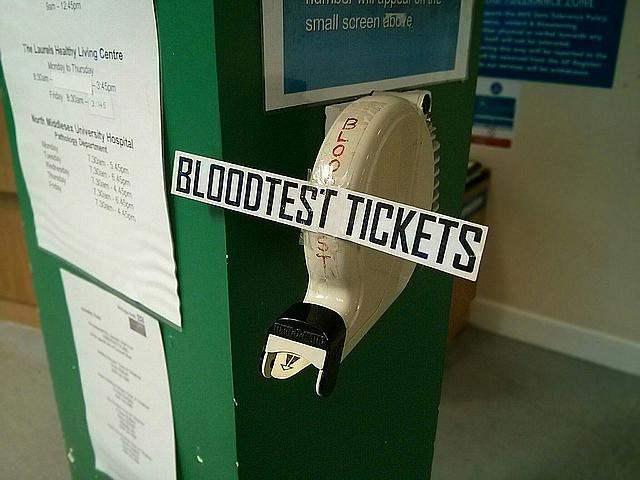On World Hepatitis Day, an invitation

Baby boomers are five times as likely to have chronic hepatitis C as any other age group. That's why the CDC launched a public health campaign to encourage boomers to get screened for the disease. And so, in honor of World Hepatitis Day, I invite — no, I encourage — boomers to get tested for hepatitis C. Why C and not the others? Because we've got effective vaccines for hepatitis A and B, but not for hepatitis C. So let's focus on that one. More information for boomers, below.
Next, I invite you to learn more about this disease. The CDC has some great resources, but here are the basics: hepatitis C is a viral infection spread through infected blood. It's incredibly infectious, and so it's easier to become infected with hep C by sharing needles, drug paraphernalia, or even razors, than it is to get infected by other viruses. Hep C attacks the liver, and can be fatal if untreated.
I've begun work on a long-term hepatitis C reporting project, with a series of radio stories airing and appearing online this fall, thanks in part to generous support from a National Health Journalism Fellowship.
Why focus on hepatitis C? Because I've been hearing from doctors and researchers that we're at a critical crossroads. A wave of infections is emerging now among baby boomers who didn't know they were infected. New infections may be developing about more recent heroin users. There's also a wave of new treatments becoming available, treatments that offer very high cure rates. But the rub is that they're expensive. Really expensive. $84,000 for a full 12-week course of medication. Many of those infected are already disenfranchised from our nation's health care system, depending on public dollars for treatment, whether through Medicaid, prisons, or emergency rooms. And so policymakers are facing tough decisions right now, as I write this, about how to allocate limited health care dollars. Who gets treated? Who has to wait? 16,000 to 20,000 people are likely infected in Rhode Island, where I work, and about five million are likely infected nationwide. It may not be a huge percentage of the population, but it's plenty. More importantly, I believe how we handle this "tsunami," as one doctor described it to me, will say a lot about how our health care system is working, or not working, for everyone.
Now, back to baby boomers. A few things you should know.
Why are people born between 1945 and 1965 more likely to be infected than people of other ages? It's not completely understood, but a few reasons include the fact that hepatitis C rates were higher in the 1970s and 80s; injection drug use rates increased during this time, and that's a risk factor; and the nation's blood supply was not screened for hepatitis until 1992, so if you got a transfusion or any blood products during that time, you may have been exposed. Unsafe tattoo and piercing practices could also have exposed you. Also, hepatitis C is usually not transmitted sexually, but it's possible.
Here's an online tool developed by the CDC to help you determine if you're at risk.
Why get screened now? Because time is not your friend if you're chronically infected with hepatitis C. Most people don't know they're infected, because the virus can lie low for a while in the body. But by the time symptoms show up, the disease may already have caused some major problems, several hepatitis C specialists have confirmed. Those problems are cirrhosis and liver cancer, of which hepatitis C is a leading cause.
But there's hope. Hepatitis C is curable. Completely. Much more effective drugs, as I mentioned, are available now, with more on the way this fall. That's great news for many who've tried, and not been cured by, the previous standard treatment, Interferon.
Photo by Tom Page via Flickr.

